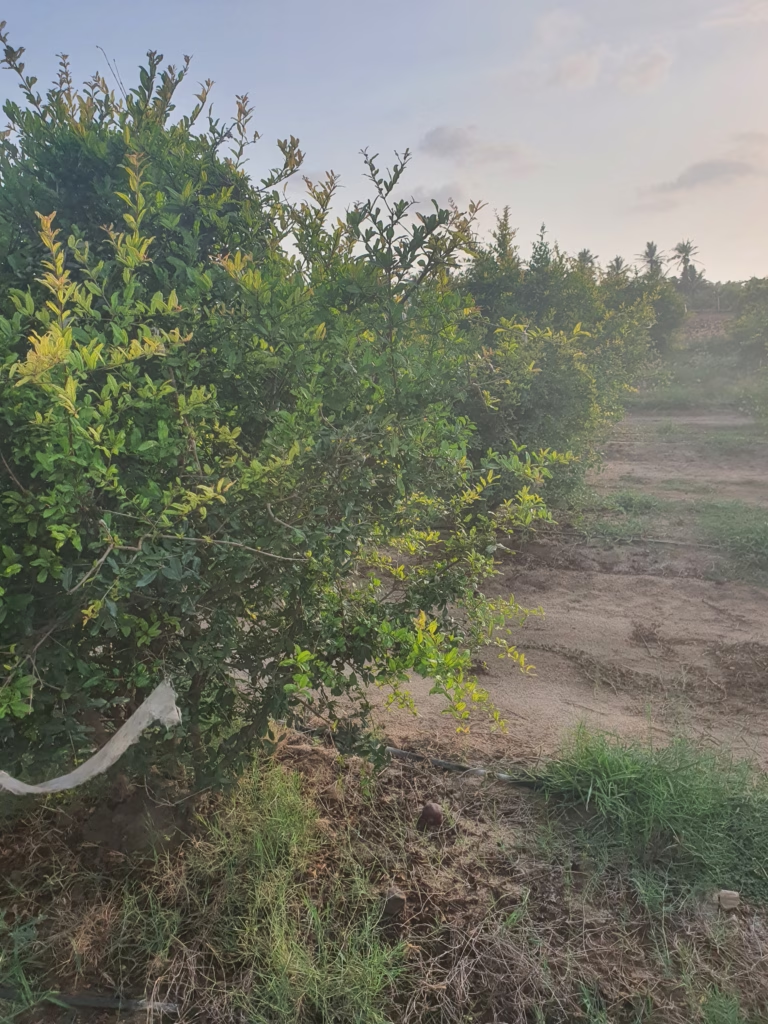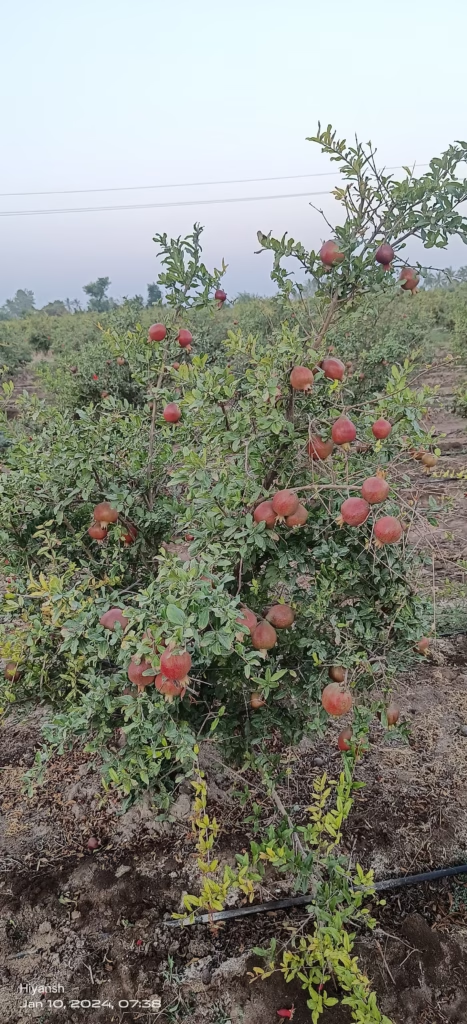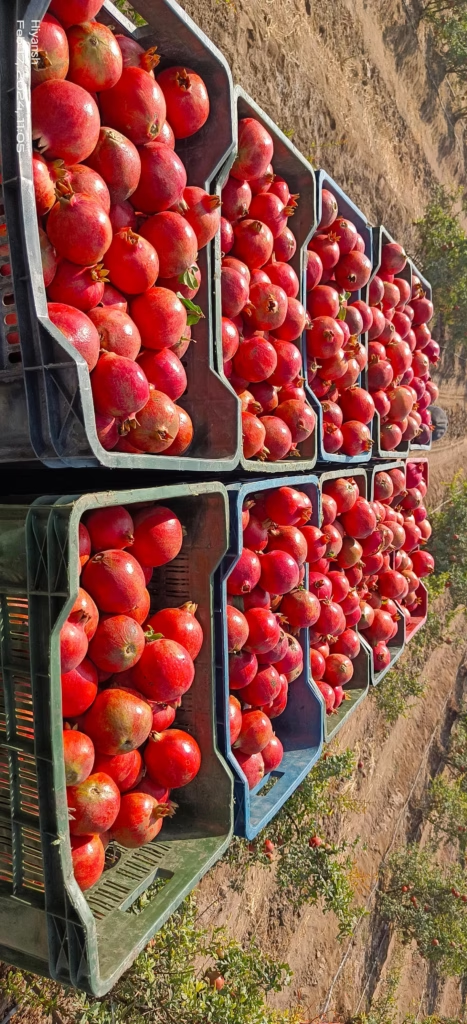Ankesh wished to do something that could keep him rooted to the soil and still give him a livelihood. So he chose to grow pomegranates.
Ankesh Patel’s father had once developed a pomegranate orchard, but the trees seemed diseased and withered due to months of neglect. Those trees drew Ankesh’s attention anytime he visited his native place in a village in Kutch, Gujarat. But engrossed in his job in Mundra, he had never paid the orchard the attention that could force him to act. It was only after he suddenly felt something amiss in his life or a sense of disconnect that he tried to introspect.

The result was, he quit his well-paying job and grew the juicy pomegranate where even grass struggles to survive. Believe it or not, today rows of pomegranate trees stand in neat lines and fruits hang from every branch. It took him just one year to revive the dying orchard and turn it into a thriving pomegranate business that exports beyond shores.
When Ankesh, 27, from Kutch, left his job and took up farming in ‘Cotton’, a barren, plateau land known for its agricultural challenges, it took an entire village by surprise. But for him, it was a calling and he decided to change the identity of the place.

After completing his B.Sc Ankesh had gotten into a job in a Mundra-based company in 2021. With a salary of Rs 25,000, he enjoyed the perks of city life but he was not happy. Back in his village, his aging parents were struggling alone on their four-and-a-half-acre farmland. His sisters were all married, and there was no one to tend the land.
“I liked my job and it was the most secure place to be, but I felt incomplete. My heart drew me to the village, to be with my family and the land that had no one to care for it,” says Ankesh. In 2023, Ankesh quit his job and returned home.
Once in the midst of the barren orchard, Ankesh wanted to study what was the problem with the land and the pomegranate trees his father had planted. He started visiting successful pomegranate farms, met horticulturists and experts, and took stock of the land.
“It was a rocky patch with hardly any water. But I somehow felt I could make the soil fertile and pomegranate trees to bear fruit with proper planning,” he recalls.
First, he built a one-acre farm pond to address water scarcity and uprooted the old trees. On 5 acres, he planted 2000 saplings of saffron pomegranates, giving the right spacing – eight-foot intervals, and installed a drip irrigation system to ensure water efficiency. For this, he invested around Rs 5 lakh in the orchard.

The first harvest made Ankesh happy. The orchard yielded six tonnes of premium-quality pomegranates! The fruits were so good that traders visited his farm directly and purchased the entire batch at Rs 145 per kg. Even a good portion of the produce was exported to Gulf.
“I could not have asked for more. Exporting the produce in the very first year was no mean feat. There’s still two tonnes of fruit left from the batch,” says Ankesh, who earned a net profit of Rs 17.5 lakh this year.
Buoyed by the success, Ankesh has planted guava and more pomegranate trees in the remaining two acres. He has also started experimenting with Dragan Froot, with a vision to harvest in a phased and season specific manner.
“I did not do any miracle it is only about understanding smart farming. I did my research and ground work and could achieve this. The present day farmers like me have AI to help track plant health, forecast weather changes, and prevent disease outbreaks. I also plan to leverage my IT background to incorporate AI tools into my farming practices,” he says.
His point was to combine the traditional know-how and tech-based solutions which can assure productivity, profitability and sustainability, and he succeeded. “Many people are not happy with their jobs but do not dare to come back to native place and do something worthwhile. They find it impractical but I did it with ease. All you need to have is a clear vision, passion and planning,” he asserts.
At a time when youngsters are running after jobs in cities, Ankesh took the road less travelled. “There’s a different kind of satisfaction in farming. The soil gives back like nothing else and it never betrays hard work,” Ankesh says with conviction standing in the midst of a huge orchard that reassures him that his decision to leave a job was not whimsical or wrong. At least the fruits vouch for it!







Leave a Comment
You must be logged in to post a comment.